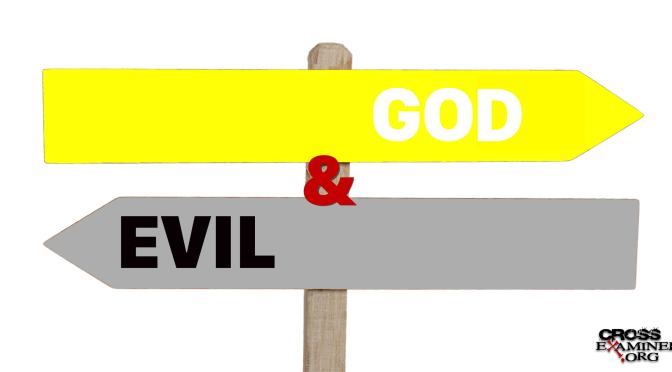Just as the word ‘God’ can conjure different ideas from a benevolent cosmic dude to a celestial judge, ‘evil’ may mean various things—usually because of different cultures and worldviews. The truth is that ‘evil’ probably doesn’t mean what you think, and its use By YHVH (God) has produced good. Let’s dig in by defining it first.
Evil defined. The word usually evokes responses like ‘scary’ or ‘spooky’ and images of fiery demons or people with spinning heads. However, these aren’t biblical representations of evil but imaginations working overtime. The truth is worse because evil is more subtle and can sneak up on you! Original biblical language and contexts suggest that it more or less represents something bad, adversarial, distressful, or disagreeable. Not spooky or frightening, but trouble often clothed in beauty that can be disguised as good despite the distress it brings.
Who’s evil, anyway? The disobedient Elohim (spiritual beings from God’s Divine Counsel) were evil. The devil we call Satan is evil. So were the ancients who opposed God’s instructions. And so is anyone behaving in wicked ways that oppose God whether they call their actions ‘good.’ Church leaders and teachers allowing distressful, adversarial, and disagreeable-to-God doctrine and people into the assembly of believers are evil. The apostle Paul called them out 2,000 years ago while also reminding Christ-followers that evil and its deceit can be beautiful: “For such men are false apostles, deceitful workers, disguising themselves as apostles of Christ. No wonder, for even Satan disguises himself as an angel of light. Therefore, it is not surprising if his servants also disguise themselves as servants of righteousness, whose end will be according to their deeds.” (2 Corinthians 11:13-15)
Guarding against evil. It’s easy to be deceived by evil or call bad good if you don’t know what good looks like! This is why a solid Christian foundation is critical to discerning good from bad and righteousness from evil. Learn well and surround yourself with godly people, practicing what you see and hear. Deal with temptation in the mind before thoughts produce bad speech or behavior. Don’t give the adversary—the ‘evil one’ of Matthew 6:13 —a foothold! And always determine how your thinking or actions will affect your relationships with God or people.
Can evil be used for good? God doesn’t test or tempt people, trip them up, or do evil to them. However, He has used distress or adversity (often termed ‘evil’) and evil people to accomplish His plans. From Joseph’s brothers and Abimelech and Saul to the prophets of King Ahab, God has turned evil into good. I’ll explain more about this in Part Two.
In summary, evil can be anything opposed to good (e.g., God’s instructions). Next time, we’ll examine how God has used evil (adversarial things) for good in Part Two. Meanwhile, behave, be kind, and beware of evil—inside the church and out!
Blessings and peace,
Dr. Ron Braley, MDiv, DMin.

